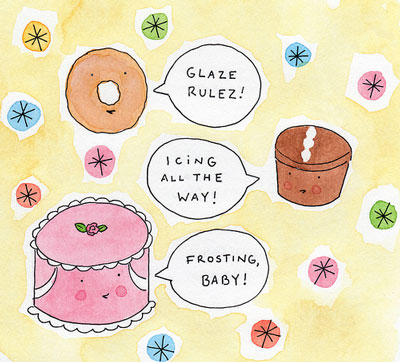 Over the weekend, we had the joy of visiting with dear friends—friends who indulge my love for language by contributing entries for Which Word Wednesday. After coming across some discussion about the difference between naked and nude, they knew it was just the sort of WWW match-up I like. Let’s look first to the New Oxford American Dictionary:
Over the weekend, we had the joy of visiting with dear friends—friends who indulge my love for language by contributing entries for Which Word Wednesday. After coming across some discussion about the difference between naked and nude, they knew it was just the sort of WWW match-up I like. Let’s look first to the New Oxford American Dictionary:
naked :: adjective
(of a person or part of the body) without clothes; (of an object) without the usual covering or protection; (of a tree, plant, or animal) without leaves, hairs, scales, shell, etc.; (of something such as feelings or behavior).
nude
adjective :: wearing no clothes; naked. (esp. of hosiery) flesh-colored.
noun :: a naked human figure, typically as the subject of a painting, sculpture, or photograph
Although both naked and nude refer to being bare, these words are not direct substitutes.
Naked is being without something—whether it be clothes, covering, leaves, hair, or scales. It refers to a lack, something that is typically covered but is not now, something that is vulnerable and unprotected.
Nude describes a human who is naked—but it does not apply to a tree that has lost its leaves. Rod Evans describes it like this in The Artful Nuance: A Refined Guide to Imperfectly Understood Words in the English Language:
“A newborn baby is naked at its birth, but a woman who disrobes and is a model for an artist is nude.”1
Mark Davidson explains that “when a nude artist’s model takes a shower, that person is naked. Nude has a more refined, esthetic connotation than naked.”2
What’s my WWW verdict? Naked and nude are grammatically different, but most people are not too concerned with the variance in terms of language. Maybe don’t ever type “naked versus nude” into Google to find other examples or a grammar-related pic. That’s not what you’ll find. And your naked eyes will see things that cannot be unseen.
What’s your verdict? Did you know the difference between naked and nude? Have you ever experienced Google search regret? Do share in the comments.
_______________
Check out previous Which Word Wednesday verdicts here.
_______________
 Sources
Sources
1. Rod L. Evans, The Artful Nuance: A Refined Guide to Imperfectly Understood Words in the English Language (New York, NY: Penguin Group, 2009), 148.
2. Mark Davidson, Right, Wrong, and Risky: A Dictionary of Today’s American English Usage (New York, NY: W. W. Norton & Company, 2006), 373.
 Have you ever repeated a word so many times that it becomes almost foreign sounding? I have. Just last week the word pleased threw me for a loop. I stared it down, trying to determine if it was spelled wrong or if I was actually using the wrong word. After obsessively repeating it within the title I was crafting, I finally had to walk away and trust it was an actual English word.
Have you ever repeated a word so many times that it becomes almost foreign sounding? I have. Just last week the word pleased threw me for a loop. I stared it down, trying to determine if it was spelled wrong or if I was actually using the wrong word. After obsessively repeating it within the title I was crafting, I finally had to walk away and trust it was an actual English word.





 It has been said that the pen is mightier than the sword. That’s because the pen writes words that convey thoughts and meaning. Words have power to build up and to tear down—and to send language lovers like me into fits of laughter (or anger).
It has been said that the pen is mightier than the sword. That’s because the pen writes words that convey thoughts and meaning. Words have power to build up and to tear down—and to send language lovers like me into fits of laughter (or anger).














